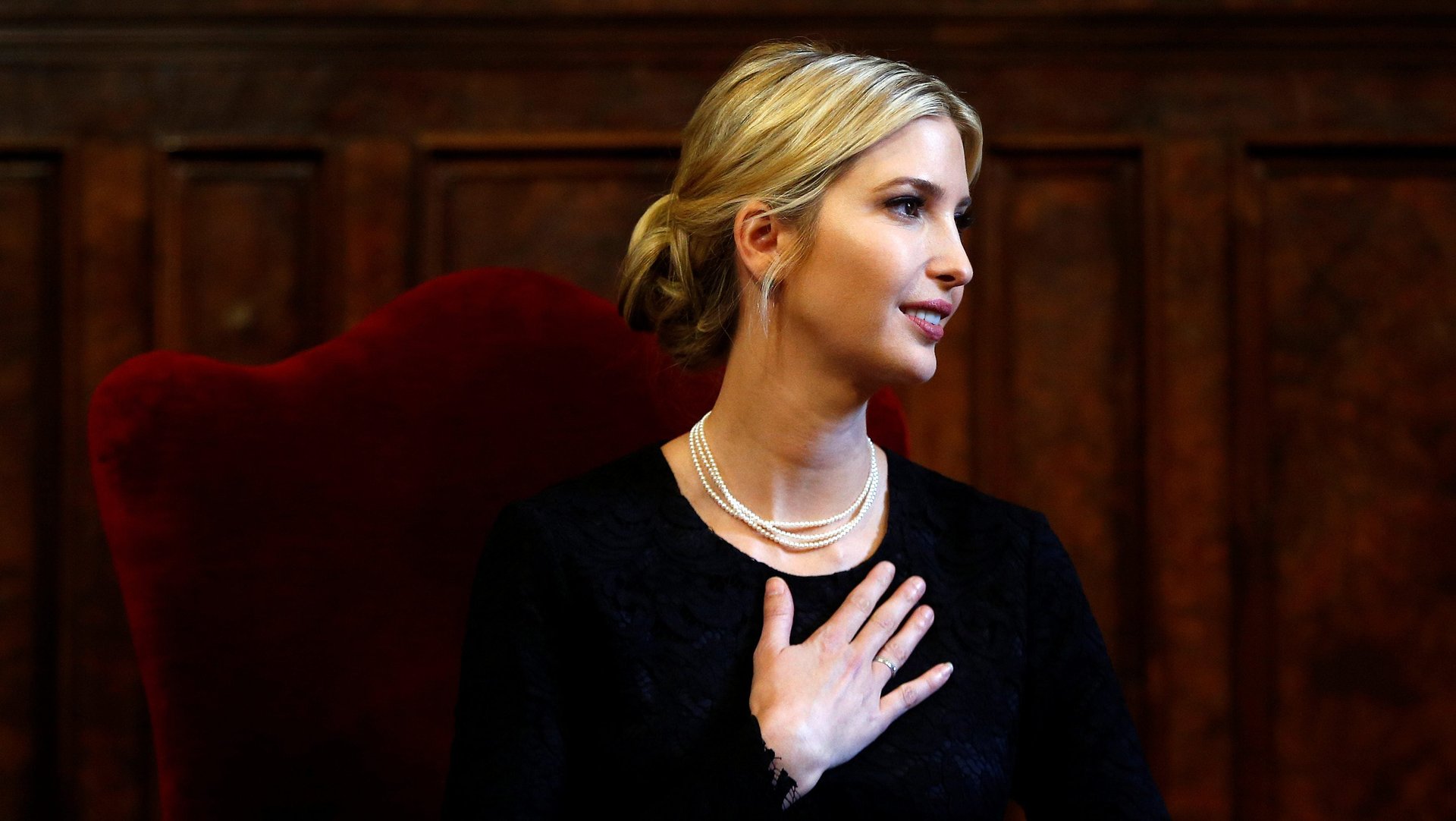What one underpaid worker making Ivanka Trump’s clothes thinks of her “women who work” philosophy
Alia first noticed the Ivanka Trump label appearing at the garment factory in Subang, West Java, where she’s employed about a year ago, according to the Guardian, long before Trump resigned from operational and management roles at her company in January. A mother of two, Alia has worked for the factory for years, making the legal minimum wage for the area, which is among the lowest in Indonesia.


Alia first noticed the Ivanka Trump label appearing at the garment factory in Subang, West Java, where she’s employed about a year ago, according to the Guardian, long before Trump resigned from operational and management roles at her company in January. A mother of two, Alia has worked for the factory for years, making the legal minimum wage for the area, which is among the lowest in Indonesia.
“When Alia was told the gist of Ivanka Trump’s new book on women in the workplace, she burst out laughing,” the Guardian reports. “Her idea of work-life balance, she said, would be if she could see her children more than once a month.”
Alia is one of more than a dozen workers the Guardian spoke with at the factory as part of an investigation into the conditions faced by the those who make clothing for the Ivanka Trump brand. According to the Guardian, the factory—PT Buma Apparel Industry—is a supplier to G-III Apparel Group, the wholesale manufacturer of Ivanka Trump’s label and several other fashion brands, and is one of those actually making Trump’s clothes.
The conditions hardly seem to match Trump’s touted goal of improving life for working women. The factory employs more than 2,700 people, about 200 of whom are unionized. Of the rest, roughly 75% are women, and many use almost their entire incomes to support children. The minimum wage for the province is 2.3 million rupiah (about $173) a month, much less than workers tend to make in China, which is why many US fashion companies have been moving production to countries such as Indonesia. (The Ivanka Trump brand also manufactures in China.)
The workers at PT Buma Apparel Industry reported having impossibly high production targets and not always receiving the overtime pay they had earned. Seven also said they endured verbal abuse, and were called names such as “animals, moron and monkey.”
The Ivanka Trump brand offered no comment to Quartz, while G-III Apparel Group did not reply immediately to a request. This story will be updated with any statement from either company.
It’s worth noting that not all workers were unhappy with the conditions. As in other countries, garment jobs can be a lifeline for the poor. “I’m glad that I work at Buma now, because my parents are farmers and it’s a tiring job,” one young woman said. “Here, at least there is air conditioning.” Permanent employees also receive three months of paid maternity leave, federally mandated health insurance, and a bonus of $10.50 per month if they don’t take a day off for their period.
Garment jobs across Southeast Asia are also routinely arduous and low-paid. Labor advocates say the conditions at PT Buma Apparel Industry are typical, and not just in Indonesia.
The Ivanka Trump brand is far from alone in paying women low wages to work long hours making its goods. But then not all lifestyle brands claim their mission is “inspiring and empowering women to create the lives they want to lead.”